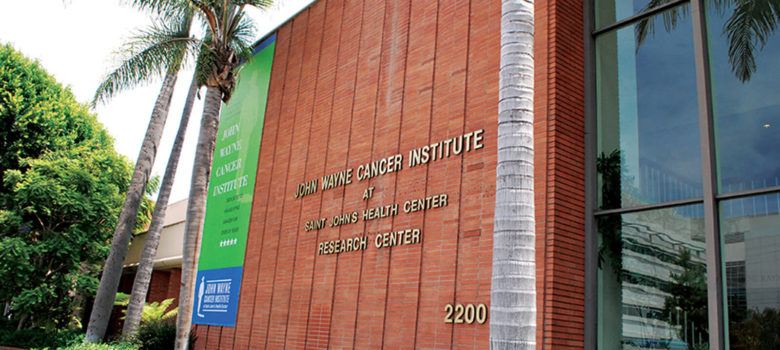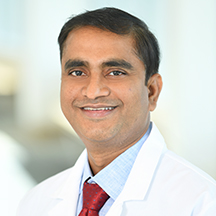

John Wayne Cancer Institute Welcomes New Faculty Members
by Zara Jethani
Pacific Neuroscience Institute (PNI) and the Saint John’s Cancer Institute (the Institute) have a very close relationship. PNI physician scientists conduct research and clinical trials in collaboration with the Institute’s scientists and the Pacific Neuroscience Research Center of Excellence is housed in the Institute building. These physicians and scientists play a key role in the education and training of newer generations of medical professionals who participate in the neurosurgical fellowship program offered by the Institute.
The Saint John’s Cancer Institute is pleased to announce the addition of four new neuroscience faculty members to their growing organization.
 ACHAL SINGH ACHROL, MD
ACHAL SINGH ACHROL, MD
ASSISTANT PROFESSOR OF NEUROSCIENCE AND NEUROSURGERY
Dr. Achal Achrol is an academic neurosurgeon who is committed to leading translational research programs that advance treatment options for patients suffering from brain tumors, stroke, intracranial aneurysms and vascular malformations. He has expertise in computer-assisted minimally invasive keyhole and microvascular neurosurgery, using advanced neuro-imaging and stereotactic navigation techniques to safely reach even the most difficult tumors and brain lesions.
His new roles include directing neurovascular surgery and neurocritical care at Pacific Stroke and Aneurysm Center at the Pacific Neuroscience Institute and serving as chief of the glioma surgery program at the Saint John’s Cancer Institute.
“The physician scientists at Providence Saint John’s Health Center, the Saint John’s Cancer Institute and Pacific Neuroscience Institute stand out to me as world-renowned leaders in our field, with extensive track records publishing medical literature that defines new standards of care and pushes innovative new techniques in precision therapy,” Dr. Achrol says.
Dr. Achrol received his medical degree from Stanford University, where he also completed his neurosurgical residency and fellowship training. At the Institute he will focus on personalized treatments and precision therapy clinical trials. “From the Providence Saint John’s motto ‘Know me, care for me, ease my way,’ it is clear that the people who choose to practice medicine here answer the call of every person they are privileged to serve,” he says. “I see in the environment here an unwavering commitment to providing a connected experience of care built on a foundation of clinical and research excellence.”
 IVAN BABIC, PHD
IVAN BABIC, PHD
ASSISTANT PROFESSOR OF TRANSLATIONAL NEUROSCIENCES AND NEUROTHERAPEUTICS
Dr. Ivan Babic was born near the city of Split on the Dalmatian coast of Croatia and received his doctoral degree in biochemistry and cancer biology from the University of Calgary in Alberta, Canada. He then moved to Los Angeles for post-doctoral training at the University of California, Los Angeles, focusing on the link between oncogenic signaling and reprogramming of cancer cell metabolism. Dr. Babic will continue this line of research at the Institute and the Pacific Neuroscience Research Center.
“Prior to graduate studies, my initial training was in biomedical research with a focus on immunology,” he says. “Sequencing of the human genome was a turning point in both personalized medicine and biomedical research. This piqued my interest in pursuing a career in cancer research. This has been a dynamic, fast-paced area of patient-centered research and has resulted in significant progress in our understanding of how cancer initiates. I am interested in translating this knowledge into development of novel therapeutics.”
At the Institute, he is studying key molecules that cancer cells become dependent on for altered metabolism. Understanding the role of molecules that regulate tumor metabolism could lead to new targets for drugs. “The environment at the Institute provides extensive collaborations between researchers and clinicians,” he says. “This is very important for both focusing my research efforts and for translating the research to help aid and direct cancer treatment.”
 JUNBAO YANG, PHD
JUNBAO YANG, PHD
ASSISTANT PROFESSOR OF TRANSLATIONAL IMMUNOLOGY
As someone who grew up in rural China where care was very limited Dr. Junbao Yang approaches his scientific work with a unique perspective. His goals are to improve cancer treatments through the exploration of the body’s natural immune-fighting mechanisms.
“The future of cancer treatment lies in immunotherapy,” he says. “Immune cells are cancer-specific, self-directed, self-renewed and have memory to prevent cancer recurrence. The challenge is how to find them.”
Dr. Yang received a medical degree from Shanghai Medical College Fudan University, before moving to Canada to earn a doctoral degree from the University of Saskatchewan, Saskatoon. His research now focuses on targeted tumor immunotherapy. Immunotherapies that help the immune system function properly in order to fight off cancer have emerged as a promising approach to the disease. Dr. Yang is looking at T-cells, the immune system’s cells that kill cancer. He plans to identify protein targets on tumors that are recognized by tumor-specific T-cells. “In the era of cancer immunotherapy, the Saint John’s Cancer Institute provides an outstanding opportunity for immunologists like me to apply our expertise in developing a cure for cancer.”
 VENKATA MAHIDHAR YENUGONDA, PHD
VENKATA MAHIDHAR YENUGONDA, PHD
ASSOCIATE PROFESSOR OF TRANSLATIONAL NEUROSCIENCES AND NEUROTHERAPEUTICS
Dr. Venkata Yenugonda shares a common frustration among cancer researchers, that is each individual’s cancer is unique while treatments for cancer are generally one-size-fits-all. Increasingly cancer therapies are becoming more personalized and targeted to the patient’s unique biology. Dr. Yenugonda’s research aims to advance this critical imperative in cancer research.
He was born in India and received his doctoral degree in medicinal chemistry from Indian Institute of Chemical Technology. He completed postdoctoral training at the Lombardi Comprehensive Cancer Center, Center for Drug Discovery at Georgetown University Medical Center.
“There is a growing need to understand cancer biology in depth and come up with technologies and emerging biomarkers to personalize cancer therapy,” he says. “I was very fortunate to get into my first postdoctoral training in cancer nanotechnology where I developed novel tumor-targeted drug delivery formulations that improve efficacy and reduce the side effects of chemotherapeutic drugs.”
His research now is aimed at developing new anti-cancer drugs and nanotechnology-based drug formulations, including finding brain cancer and neurodegenerative disease medications that cross the blood-brain barrier.
Adapted from INNOVATIONS, FALL 2016.
About the Author

Zara Jethani
Zara is the marketing director at Pacific Neuroscience Institute. Her background is in molecular genetics research and healthcare marketing. In addition, she is a graphic designer with more than 20 years experience in the healthcare, education and entertainment industries.
Last updated: November 13th, 2019